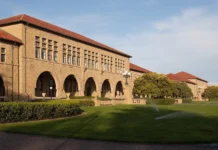The Museum of Fine Arts presented “Memory Unearthed: Music from the Lodz Ghetto” Sunday in conjunction with the stunning exhibition of photographs by Henryk Ross. Confined to the Lodz Ghetto during World War II, Ross was employed by the Nazis as a photographer to make identity cards for Jews. He also, at great risk, documented life in the ghetto, including the transport of Jews to other camps or to the gas chambers. He buried the negatives and was fortunate enough to return after the war to find some 6,000 images had survived. The photographs are worth a visit themselves, but this concert served to further underscore in a tangible way the breadth and depth of the wound to the human spirit that was dealt by the Holocaust.
During World War II, the Czech town of Terezin was converted into a ghetto/concentration camp for Jews and political prisoners from across Europe. Nominally, Jews were being “resettled” to the eastern front of the Nazi empire, but in truth they were used for slave labor at up to 25,000 camps before being executed in gas chambers or starved and worked to death.
Designed initially for elderly people and for cultural elites, Terezin was used as a propaganda tool to deceive the Red Cross and the allies. A film was made showing the “comfortable life” of the relocated Jews, including their rich cultural activities. There were many writers, artists, and musicians transported to Terezin, which at times had up to 4 orchestras and theater groups for the nearly 70,000 people held there.
One of the insidious rules of the Nuremberg Laws forbade Jews from owning or playing instruments, so to make music was an act of defiance. The music performed on Sunday was by composers interned at Terezin, often before they were sent on to Auschwitz or Treblinka. The Terezin Music Foundation, under the direction of BSO violist Mark Ludwig, has made a mission of giving voice to the musicians silenced in this dark era, commissioning new works in commemoration, and in general, keeping the flame of hope alive.
The performers were pianist Virginia Eskin, mezzo soprano Deborah Rentz-Moore, clarinetist Thomas Martin, and cellist Eugene Kim. Ludwig introduced the program and each piece most effectively, showing slides of the composers and explaining their lives. To look on the smiling, confident face of Viteslava Kapralova, noted as both a conductor and a composer, and hear she died of tuberculosis in a transport camp in Vichy, France, or to see the identity card of Viktor Ullman’s daughter, hearing that she was sent to England as a refugee, but that she was never adopted and died institutionalized and then hear their music was just heart-breaking.
The program opened with the Piano Sonata of Gideon Klein. The three movements, Allegro con fuoco, Adagio, and Allegro vivace had the jazz influenced, expressionist style of the period while still be lyrical and romantic. Virginia Eskin knows this music inside and out and gave it a powerful interpretation. She has chops, style, and a musical intelligence that delineated line and leant great emotion to the jagged chords of the third movement.
Ilse Weber, a Czech Radio announce, became the night nurse for the children at Terezin. She wrote the songs Ade Kamerad, Kleines Wiegenlied, Emigrantenlied, Lullaby, Ich wander durch Theresienstadt, and Unter regen rinnt to comfort her charges. She managed to send one of her two sons to Sweden, but the other remained with her and her husband in the camp. When the time came that her husband and son were to be transported to Auschwitz, she volunteered to go as well, and she was gassed immediately upon arrival, along with many of the children she had cared for. Kleines Wiegenlied felt especially poignant; its words “Schlaf, Kind, und vergess…” Unter regen rinnt sounded very Schubertian. Deborah Rentz-Moore possesses clear, deep, wood dove sound that other mezzos might covet. She delivered these songs with restrained emotion that suited them beautifully.
Kapralova’s Four Preludes for Rudolf Firkusny followed, again allowing Eskin to shine. Kapralova must have been a formidable pianist as well.
Viktor Ullman had been a student of Schoenberg and the assistant to Alexander Zemlinksy in Prague. He died in Auschwitz in 1944. The Theme and variations from his Piano Sonata #3 featured one variation that made much use of the tritone, cutting across the music like the sound of a European ambulance.
Ullman’s Ghetto Songs (“Treblinka,” “Gypsy Lied,” “In the Dugout,” “Ziamele,” “Dance,” and “Quiet, quiet”), in arrangements by David Post for voice, piano, clarinet, and cello, a sort of mini Pierrot ensemble, closed the concert. The colors of the instruments, handsomely dispatched by Martin & Kim, allowed the music to veer between klezmer and Mahler with great effectiveness. Rentz-Moore sang some of the verses in English as well as German, allowing little escape from the sadness of the lyrics of “Treblinka” or “Quiet, quiet.” One of the songs resulted from a competition in the camp for extra rations of bread or an egg. An 11 year old boy won with the words, “Once I had a daddy, now I am treated like a rag, because I am a Jew” left one nowhere to turn. As Ludwig said, we have these songs, this music, marking man’s inhumanity to his fellow man from 70 years ago…in 70 years, will we be singing the songs of Syrian refugees, or from Darfur or Somalia? It is not simply enough to never forget, one must actively remember and not stand by.
























